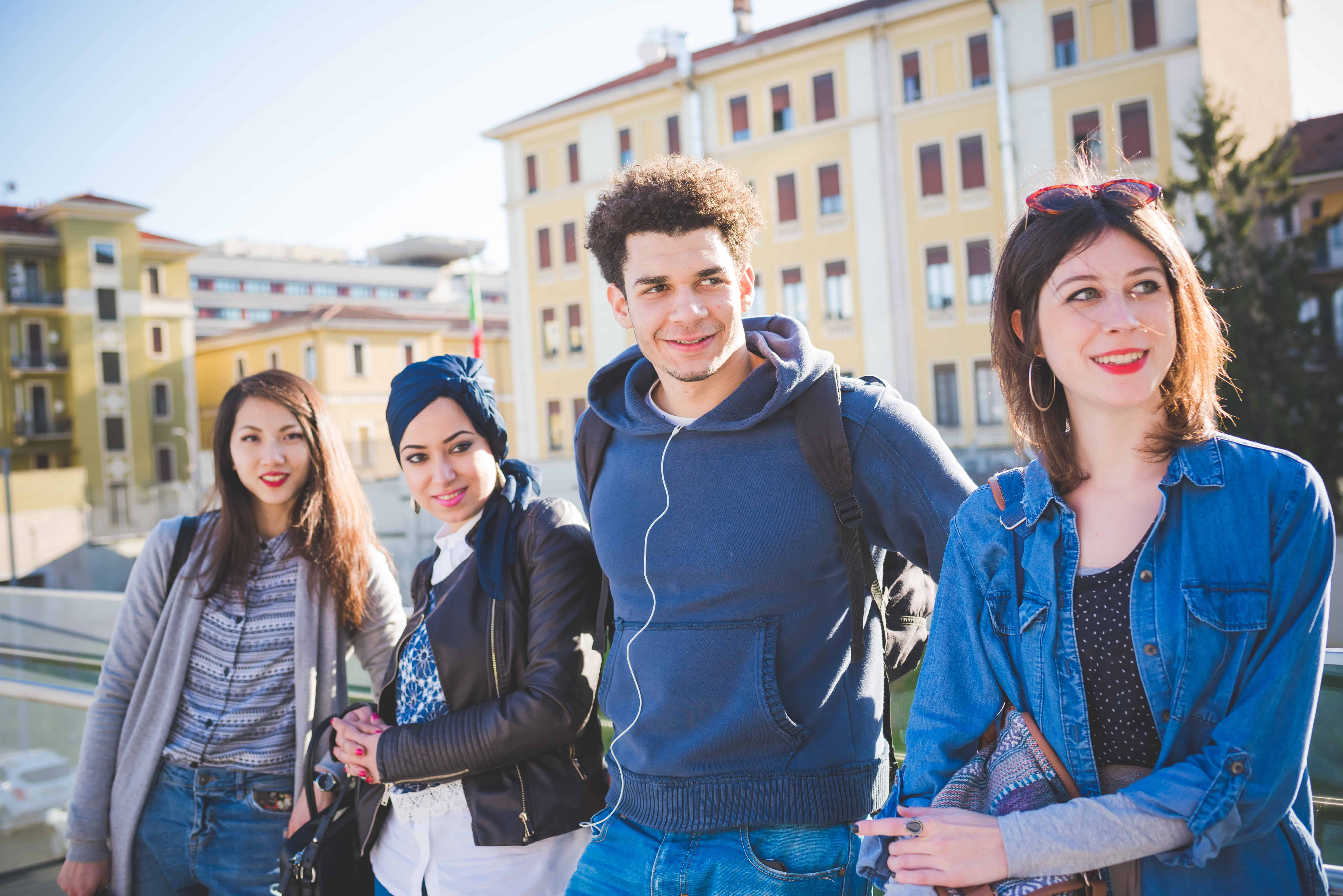Malta’s education system follows the British model, offering globally recognised degrees. For Italian students, this translates to studying in English, boosting their language skills for international careers. Italy’s education system is prestigious but often demands Italian fluency, limiting options for students who prefer to learn in English. Among the primary reasons are:
1. Affordable education without compromising quality
Italy’s universities charge up to €12,000 annually for non-EU students, while private institutions can cost more than €35,000 (Think Europe). Malta? The cost is a fraction of what it is to study in Italy. At GBS Malta, as a private institution, undergraduate fees start at €6,000 per year, while postgraduate courses such as the Master of Business Administration cost €10,000.
Cost-saving perks in Malta
- 70% tuition rebate: Through Malta’s Get Qualified scheme, graduates working locally can reclaim up to 70% of fees.
- Part-time work: Earn while studying – up to 20 hours a week during term time.
- Free public transport: Save more than €300 annually with unlimited travel passes (Infrastructure Malta).
| Expense |
Malta (€) |
Italy (€) |
| Annual tuition |
6,000-10,000 |
12,000-35,000 |
| Monthly rent |
500-800 |
600-1,200 |
| Public transport |
Free |
200-350 |
Sources: Think Europe
2. English-taught programmes: A global edge
While Italy’s courses are mostly Italian-only, Malta adopted English as its primary teaching language in 1934. For Italian students, this means:
- No language barriers: Attend lectures, network, and work part-time in English.
- Global recognition: Degrees from GBS Malta are accredited by MFHEA
- Career flexibility: English proficiency is a priority for 91% of EU employers.
3. A gateway to Europe’s fastest-growing industries
Malta's economy is experiencing rapid growth across a wide range of industries, including:
- Technology and artificial intelligence (AI): More than 300 gaming companies and a thriving financial technology (fintech) hub.
- Tourism and hospitality: Revenue of €15 million revenue in 2024, with internship opportunities at luxury hotels (Statista).
- Healthcare: Pharmaceutical sector revenue is expected to reach €161 million this year (Vaccines Europe).
4. Cultural comfort meets Mediterranean adventure
Malta and Italy share many similarities, allowing Italian students an easier transition. Think warm weather, mediterranean cuisine and a relaxed atmosphere. Many Maltese speak Italian, making communication easier. Yet, Malta’s British influence adds a unique twist, offering Italian students a chance to explore a new cultural layer while feeling at home. This blend of familiarity and discovery makes studying in Malta both comfortable and exciting, ideal for Italian students seeking adventure without experiencing a culture shock.
There are several familiar and thrilling aspects of Malta for Italians, such as:
- Climate: Malta has on average 300 days of sunshine per year versus Italy's diverse climate.
- Travel: Schengen access, which lets you explore 26 countries hassle-free.
- Safety: Malta is ranked Europe’s second safest country in 2021 (Colours of Malta).
Moreover, Valletta’s Baroque architecture and its Maltese cuisine – think rabbit stew and ftira bread – blend Sicilian and North African influences.
5. Streamlined admissions and post-study support
Italy’s bureaucratic education system often delays admissions. Malta simplifies it as follows:
- No International English Language Testing System (IELTS) score? No problem: GBS Malta accepts Medium of Instruction (MOI) letters or internal English tests.
- Fast-track visas: The e-residence permit process takes four to six weeks.
- Post-study work: Stay nine months after graduation to secure sponsored jobs.
6. Geographical proximity: Close to home
Malta’s proximity to Italy makes it a game-changer for Italian students. Malta is accessible within two hours by flight from Rome, Milan, or Catania, with affordable fares as low as €60 (Rome2Rio). This means easy weekend trips home, keeping homesickness at bay. Compared to distant study destinations, studying in Malta lets Italian students stay connected with family while embracing a new academic journey.
7. Job opportunities: A growing market
Malta’s booming economy offers Italian students exciting career prospects. Industries such as tourism, technology, gaming and finance are thriving, with a 3.2% increase in job openings in 2024 (LeapScholar). Graduates can stay up to six months after graduation to find employment, an incentive for Italian students eyeing international careers. Malta’s business-friendly environment attracts global companies, boosting demand for skilled professionals in the education system and beyond.



